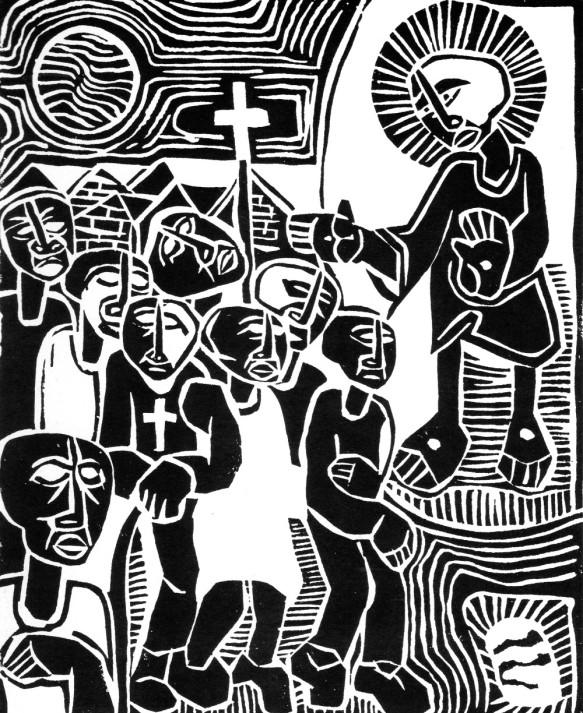
Then he looked up at his disciples
When Jesus looks up at you, what do you feel?
Where does your mind go?
What happens to your heart?
How does your posture change?
Where does your body pull you?
and said
And when he opens his mouth to speak to you? What then?
None of us encounter Jesus empty-handed. We’re all holding on to something.
Maybe we’ve been wounded and are coming to him holding the hope of healing. Or maybe we’ve been wounded and didn’t intend to encounter him but now he’s looking at us and we’re just holding that wound between us.
Maybe we’re coming to him holding love or affection or anticipation. Maybe we are holding shame or fear.
Noting how we respond to an intimate encounter with Jesus might tell us something about what we are carrying. Do we turn away? Do we lean in? What is your body telling you?
Today, in this first week of Lent—what are you carrying into the season? Where is your journey starting?
“Blessed are you who are poor, for yours is the kingdom of God. Blessed are you who hunger now, for you will be satisfied. Blessed are you who weep now, for you will laugh. Blessed are you when people hate you, when they exclude you and insult you and reject your name as evil, because of the Son of Man.”
The words that Jesus speaks call for a different type of reflection on what we are carrying. Instead of a figurative carrying, he asks us to consider a more concrete kind of carrying.
How much money is on the other end of the debit card in your purse or wallet?
How heavy is your 401k?
How empty is your stomach?
When was the last time you wept, and for what?
Do people hate you, exclude you, and revile you? On what or whose account?
Personally, this might be my least favorite passage in the Bible. I like Matthew’s version (blessed are the poor in spirit, blessed are those who hunger and thirst for righteousness, etc.) better. It’s easier for me to think that I might fall into the categories of being poor in spirit or hungry for righteousness. I have to do a lot more mental gymnastics to try to convince myself that I should be included in the economically poor or physically hungry group. And those gymnastics leave me fallen flat on my face.
While there might be an element of double entendre in Jesus’ words in Luke, throughout the course of the book it seems that Luke is clear that our physical and economic realities are an important component to living in the kingdom under God’s blessing (or not). Time after time Jesus blesses and heals and welcomes to his feast the poor, the wounded, the foreigner, the outcast. And time after time he turns the rich and powerful and religious leaders away empty and warns them of exclusion from the kingdom of God.
Jesus’ words, therefore, might be a blessing to us. Or we might be left out of the blessing. We can check our bank accounts and pantries to be sure. Either way, the words are intended for us.
And so today, in this first week of Lent, where do Jesus’ words find us? What are we carrying? And where might he be calling us? Certainly Golgotha. Certainly a grave. And also, certainly, a garden full of grace and come to life.
Reflection Questions
- As we enter Lent, what are you carrying, good or bad? How are you entering the season?
- Where do you recognize you are living under the blessings of God? Where might you not be? Where do you hope to be? Where are you afraid of being?
Song: Hammock – My Mind Was A Fog…My Heart Became A Bomb.